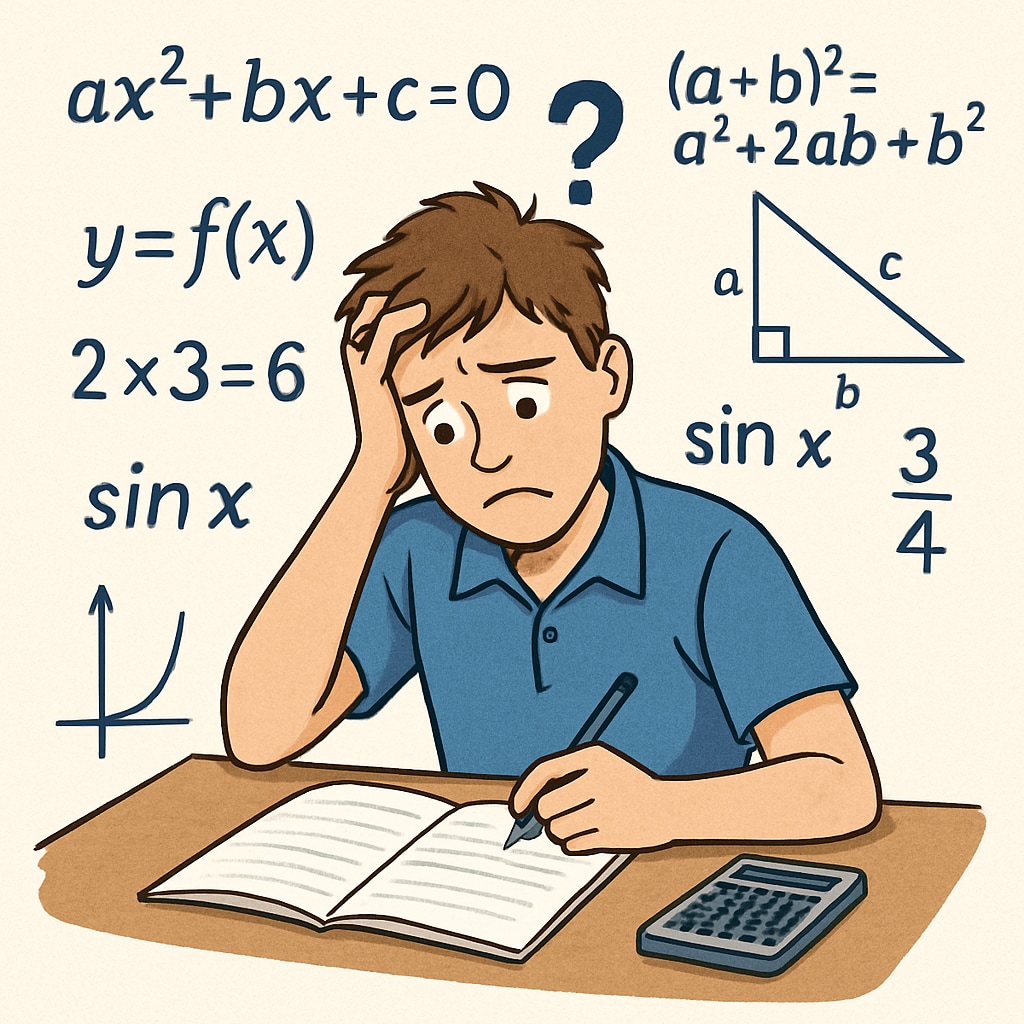Math exam anxiety, multiple-choice question struggles, and academic pressure are common challenges faced by students worldwide. These issues often lead to poor performance and hinder long-term academic growth. Understanding how anxiety affects learning and implementing solutions can help students overcome these barriers and regain confidence in their math abilities.
What Is Math Exam Anxiety?
Math exam anxiety refers to the overwhelming fear or stress experienced during math assessments, particularly multiple-choice exams. This type of anxiety can manifest in physical symptoms like sweating, increased heart rate, or mental blocks, making it difficult for students to focus or recall information. According to experts, math anxiety is not only a psychological issue but also a cognitive barrier that interferes with problem-solving skills and logical reasoning.
For example, a student who understands mathematical concepts during class may freeze under pressure during a test, leading to incorrect answers or blank submissions. This cycle of fear and poor performance often perpetuates itself, creating long-term academic challenges.

How Multiple-Choice Questions Add to Stress
Multiple-choice questions, while seemingly straightforward, can exacerbate math exam anxiety. Students often struggle with these formats due to the following reasons:
- Distracting Options: Incorrect answers, known as distractors, are designed to appear plausible, leading to confusion and second-guessing.
- Time Pressure: Multiple-choice exams typically demand quick decisions, increasing stress levels for students who require more time to process information.
- Fear of Guessing: Many students worry about the consequences of choosing the wrong answer, even when unsure.
As a result, students with math anxiety may feel even more overwhelmed, focusing on the fear of failure rather than applying their knowledge effectively.
Practical Strategies to Combat Math Exam Anxiety
Fortunately, there are proven strategies to minimize math exam anxiety and improve performance. These methods include both psychological and practical approaches:
- Practice Mindfulness: Techniques such as deep breathing, meditation, or progressive muscle relaxation can help calm the mind before and during exams.
- Develop a Study Routine: Regular practice and structured study plans reduce last-minute cramming and boost confidence.
- Focus on Positive Reinforcement: Celebrate small successes during practice sessions to build self-esteem.
- Master Multiple-Choice Techniques: Teach students to eliminate obviously incorrect options first and focus on logical reasoning for the remaining choices.
- Seek Professional Help: For severe anxiety, consider consulting a school counselor or therapist specializing in academic stress.
Building a Healthy Academic Mindset
Overcoming math exam anxiety involves more than just test-day strategies; it requires cultivating a positive and resilient learning attitude. Here are a few tips for maintaining a healthy academic mindset:
- Reframe Failure: Encourage students to view mistakes as learning opportunities rather than setbacks.
- Set Realistic Goals: Break down larger academic objectives into smaller, achievable tasks.
- Collaborate with Peers: Group study sessions can reduce isolation and build collective confidence.
- Stay Physically Active: Regular exercise improves mental health and reduces stress.

By implementing these strategies and fostering a supportive environment, students can gradually overcome math exam anxiety and thrive academically.
Readability guidance: Use short paragraphs and lists to summarize key points. Balance active and passive voice, ensuring smooth transitions between ideas with words like “however,” “therefore,” and “for example.” Avoid overly complex sentence structures and jargon to maintain accessibility for readers.


